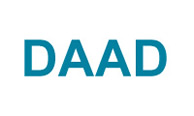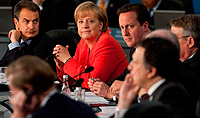The British-German Conference 2011
"The UK and Germany in a Changing World Order: New Challenges, New Strategies"
 The British-German Conference 2011 is a four-day program of keynote speeches, panel discussions, and debates that will address the international roles and responsibilities of the UK and Germany in a changing world order, and the importance of the bi-lateral relationship. Speakers at the conference will be high-profile figures from the UK, Germany, and the wider international community, in the fields of international politics, diplomacy, academia, the private sector and civil society. Attendance at the conference is open to young professionals, scholars and students, diplomatic and political representatives, journalist, civil society practitioners, and other stakeholders with an interest in the UK, Germany, and the field of international relations.
The British-German Conference 2011 is a four-day program of keynote speeches, panel discussions, and debates that will address the international roles and responsibilities of the UK and Germany in a changing world order, and the importance of the bi-lateral relationship. Speakers at the conference will be high-profile figures from the UK, Germany, and the wider international community, in the fields of international politics, diplomacy, academia, the private sector and civil society. Attendance at the conference is open to young professionals, scholars and students, diplomatic and political representatives, journalist, civil society practitioners, and other stakeholders with an interest in the UK, Germany, and the field of international relations.Conference Background
Germany and the UK are both experiencing crucial periods of self-analysis. With public debt at worryingly high levels and economic recovery taking longer than expected, the financial security of Europe and the Eurozone is coming under increasing focus amongst political commentators across the continent. Economic instability in the Eurozone has, in turn, only heightened divisions that exist amongst national politicians in their positions towards the EU.The structures of international organisations have also been brought under scrutiny by the global economic crisis, and face additional pressure on account of the ongoing instability in Afghanistan and central Asia. With regards to the United Nations, there is continued discussion surrounding the reform of the UN Security Council. Central to this is improving the representation of UN membership; Germany’s campaign for a permanent seat is supported by the UK, whilst other members, such as Italy and the Netherlands, have expressed caution.
The founding principle of NATO as a collective defence organisation is also undergoing re-definition as it expands to incorporate the risk of so-called ‘home-grown’ terrorism, threats from cyber attacks, and unprecedented numbers of natural disasters. The UK and Germany will play key roles in its future. They contribute the second and third greatest number of troops, respectively, to the International Security Force in Afghanistan, with plans in place to begin withdrawing troops this year. Germany’s focus is on training as opposed to combat, in line with the German Federal Government’s coalition agreement to a ‘culture of restraint’, which is traditional in German foreign and security policy, but is not always in line with that of the UK.
In the area of climate change, the perceived failure of the Copenhagen Conference and the subsequent public outcry reflects not only the challenges associated with harnessing multi-lateral agreement on climate change, but also the importance with which this issue is viewed amongst civil societies and general publics. Germany and the UK are both under pressure from environmental groups within their political systems, and the general publics at large, to lead by example and hold themselves accountable to higher standards than other states outside of Europe.
The national, regional, and global challenges outlined above affect both the UK and Germany, if in different ways. As two of Europe’s most populous, most economically powerful, and most globally visible states, they have key roles to play in meeting these challenges. The Institute for Cultural Diplomacy has therefore decided to launch “The British-German Conference 2011” to reflect on these challenges, the German and British approaches to them, and the importance of the two countries working together.




































































